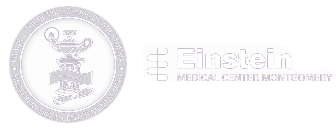program terminal objectives
BSN to DNP Program Terminal Objectives
- Be vigilant in the delivery of patient care.
- Refrain from engaging in extraneous activities that abandon or minimize vigilance while providing direct patient care (e.g., texting, reading, emailing, etc.).
- Conduct a comprehensive equipment check.
- Protect patients from iatrogenic complications.
- Provide individualized care throughout the perianesthesia continuum.
- Deliver culturally competent perianesthesia care (see Glossary, “Culturally competent”).
- Provide anesthesia services to all patients across the lifespan (see Glossary, “Anesthesia services” and “Across the lifespan”).
- Perform a comprehensive history and physical assessment (see Glossary, “Comprehensive history and physical assessment”).
- Administer general anesthesia to patients with a variety of physical conditions.
- Administer general anesthesia for a variety of surgical and medically related procedures.
- Administer and manage a variety of regional anesthetics.
- Maintain current certification in ACLS and PALS.
- Apply knowledge to practice in decision making and problem solving.
- Provide nurse anesthesia services based on evidence-based principals.
- Perform a preanesthetic assessment before providing anesthetic services.
- Assume a responsibility and accountability for diagnosis.
- Formulate an anesthesia plan of care before providing anesthesia services.
- Identify and take appropriate action when confronted with anesthetic equipment-related malfunctions.
- Interpret and utilize data obtained from noninvasive and invasive monitoring modalities.
- Calculate, initiate, and manage fluid and blood component therapy.
- Recognize, evaluate, and manage the physiological responses coincident to the provision of anesthesia services.
- Recognize and appropriately manage complications that occur during the provision of anesthesia services.
- Use science-based theories and concepts to analyze new practice approaches.
- Pass the national certification examination (NCE) administered by NBCRNA.
- Utilize interpersonal and communication skills that result in the effective exchange of information and collaboration with patients and their families.
- Utilize interpersonal and communication skills that result in the effective Interprofessional exchange of information and collaboration with other healthcare professionals.
- Respect the dignity and privacy of the patients while maintaining confidentiality in the delivery of interprofessional care.
- Maintain comprehensive, timely, accurate and legible healthcare records.
- Transfer the responsibility for care of the patient to other qualified providers in a manner that assures continuity of care and patient safety.
- Teach others.
- Integrate critical and reflective thinking in his or her leadership approach.
- Provide leadership that facilitates intraprofessional and Interprofessional collaboration.
- Adhere to the Code of Ethics for the Certified Registered Nurse Anesthetist.
- Interact on a professional level with integrity.
- Apply ethically sound decision-making processes.
- Function within legal and regulatory requirements.
- Accept responsibility and accountability for his or her practice.
- Provide anesthesia services to patients in a cost-effective manner.
- Demonstrate knowledge of wellness and substance use disorder in the anesthesia profession through completion of content in wellness and substance use disorder (see Glossary, “Wellness and substance use disorder”).
- Inform the public of the role and practice of CRNA.
- Evaluate how public policy making strategies impact the financing and delivery of healthcare.
- Advocate for health policy change to improve patient care.
- Advocate for health policy change to advance the specialty of nurse anesthesia.
- Analyze strategies to improve patient outcomes and quality of care.
- Analyze health outcomes in a variety of populations.
- Analyze health outcomes in a variety of clinical settings.
- Analyze health outcomes in a variety of systems.
- Disseminate research evidence.
- Use information systems/technology to support and improve patient care.
- Use information systems/technology to support and improve healthcare systems.
- Analyze business practices encountered in nurse anesthesia delivery settings.

